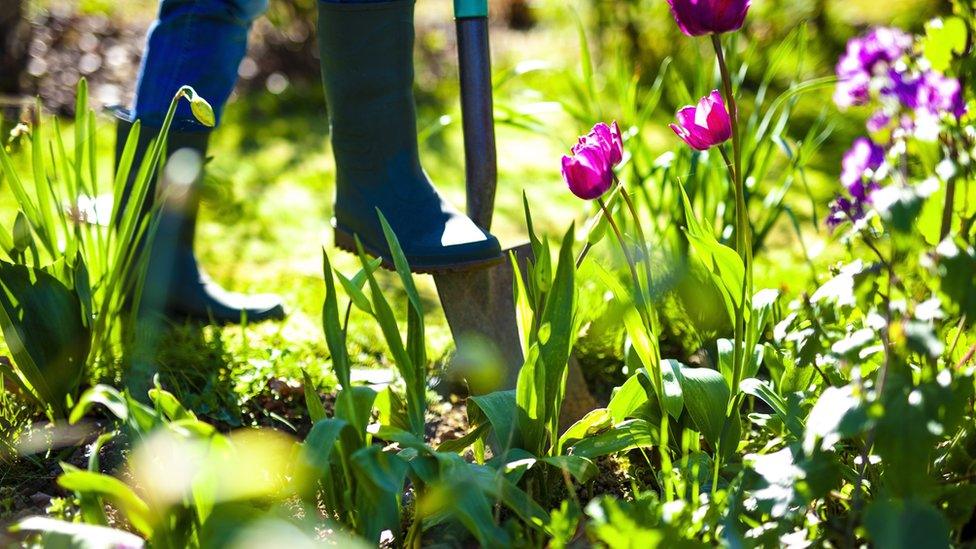Artificial lawns: Wales ban would leave owner with 'no business'
- Published
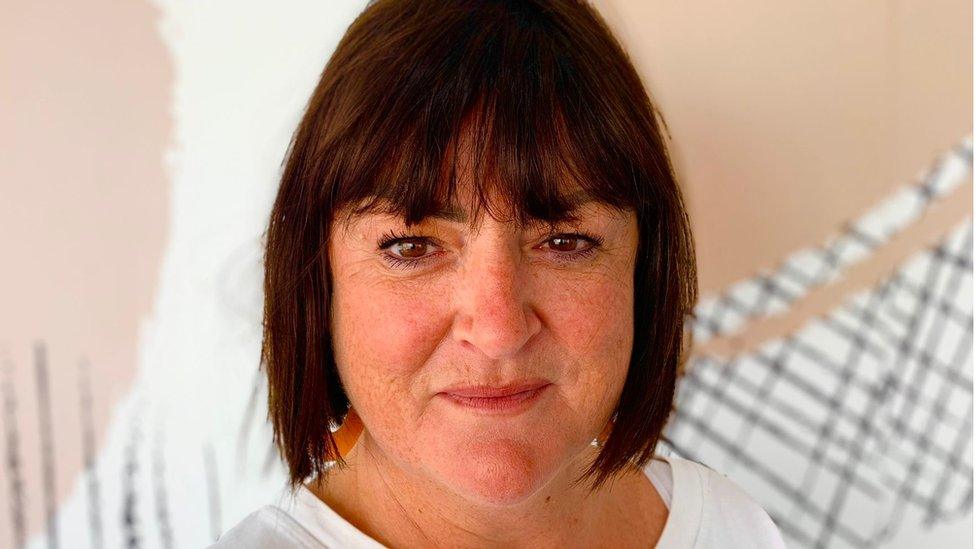
Carol Hustwitt runs Gorgeous Grass on Anglesey
A business owner has said a ban on fake lawns in Wales would kill off her livelihood.
Carol Hustwitt sells artificial grass on Anglesey and said a possible ban on the synthetic material would be "very extreme".
It comes after Welsh government minister Julie James raised the idea in the Senedd.
She said she wanted to explore whether Wales' new law banning some single-use plastics could be used for such a ban.
Ms Hustwitt has been selling artificial grass for over 20 years for schools and homes in north Wales, and said she "would not know what to do next" if a ban came into place.
"If that were to come into play, I would have no business," she told BBC Radio Wales Breakfast.
"I've been in the industry for such a long time, it's what I do, it pays my bills, it puts food on the table, it keeps us going."
Ms Hustwitt currently employs three members of staff on a permanent basis, and additional staff part-time when work increases.
"I just think it's very extreme. The term single-use is absolutely ridiculous," she said.
"How could you suggest that an artificial grass lawn is single-use?
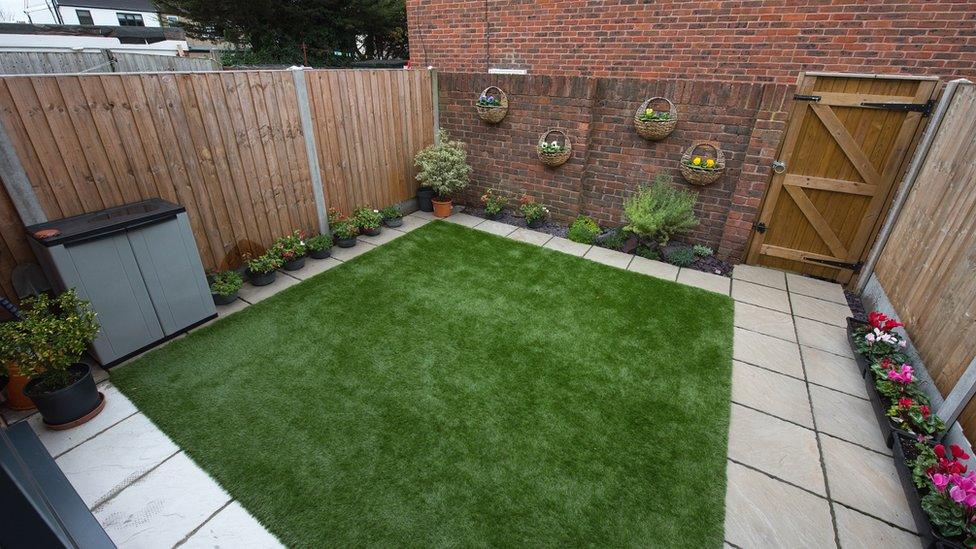
Welsh government minister Julie James said artificial grass "isn't the short-term solution it looks like for people"
"It's expected to last for a minimum of 15 years so I can't see how [Julie James] can use that term. It's ridiculous."
In the Senedd, climate change minister Ms James said there were "worrying reports" that the "toxicity coming off artificial grass" could be "quite alarming".
A garden centre manager in Cardiff said he decided to stop selling artificial grass to be more sustainable.
Nick Carter, 52, from Pugh's Garden Village said he does not think the product is good for the environment.
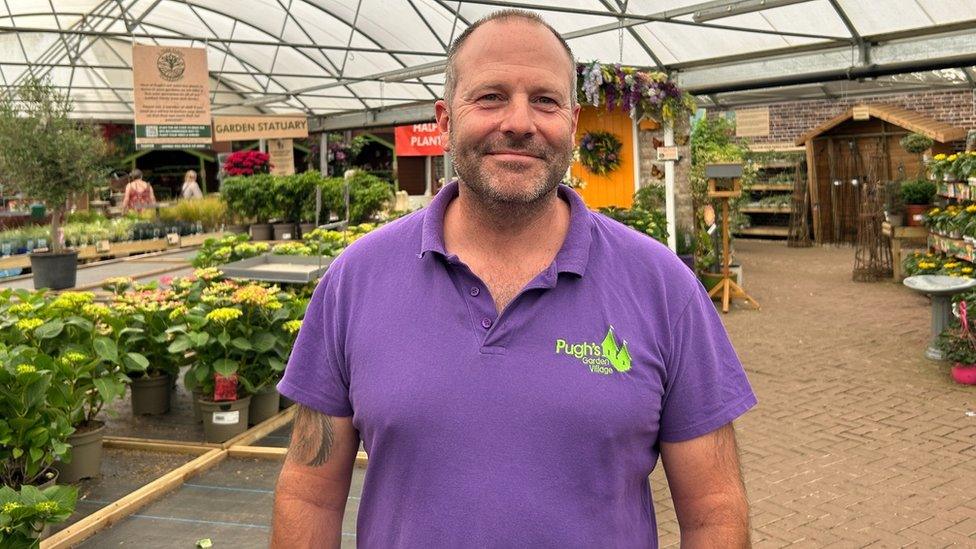
Nick Carter said people ask for artificial grass, but he tries to give them alternatives
"Grass is a habitat in its own right, and it's one of the first sources of food for bees after the winter," he said.
"Artificial grass is black on the underside, so it can get really really hot. There's been reports that children have burned their feet and animals have hurt their paws.
"I don't think it's particularly hygienic and it's hard to clean. If a dog has an accident you can hose grass and get rid of it that way."
But Mr Carter said he thought a total ban on artificial grass "might be too far".
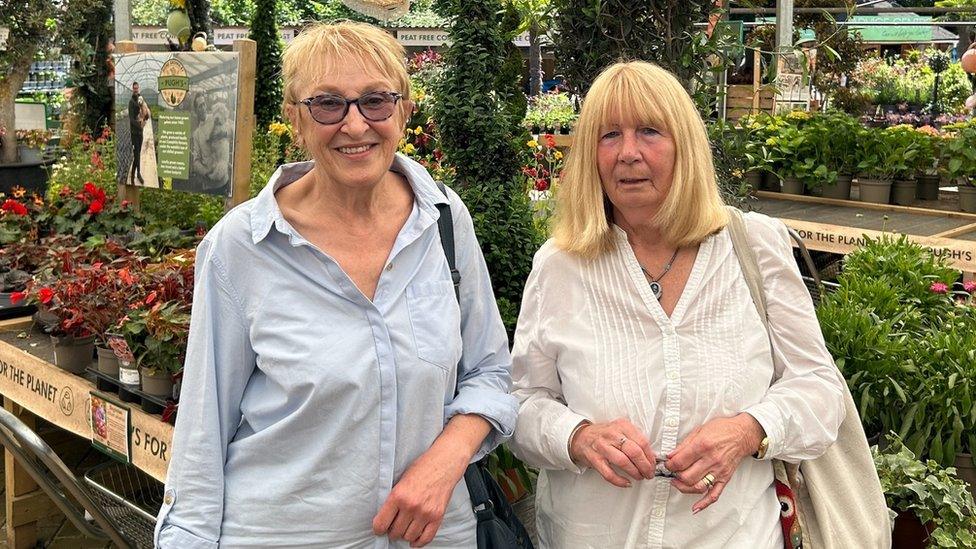
Kay Davies (left) and Barbra Rees (right) said neither of them would consider buying artificial grass
One customer at his garden centre, Kay Davies, 73, from Abertidwr in Caerphilly, said she "agrees whole-heartedly" with a proposed artificial grass ban.
"I've got six grandchildren, I want them to grow up in a world without all this pollution," she said.
Her neighbour, Barbra Rees, said she agreed.
"The birds don't understand that its not grass and they start pecking on it," she said.
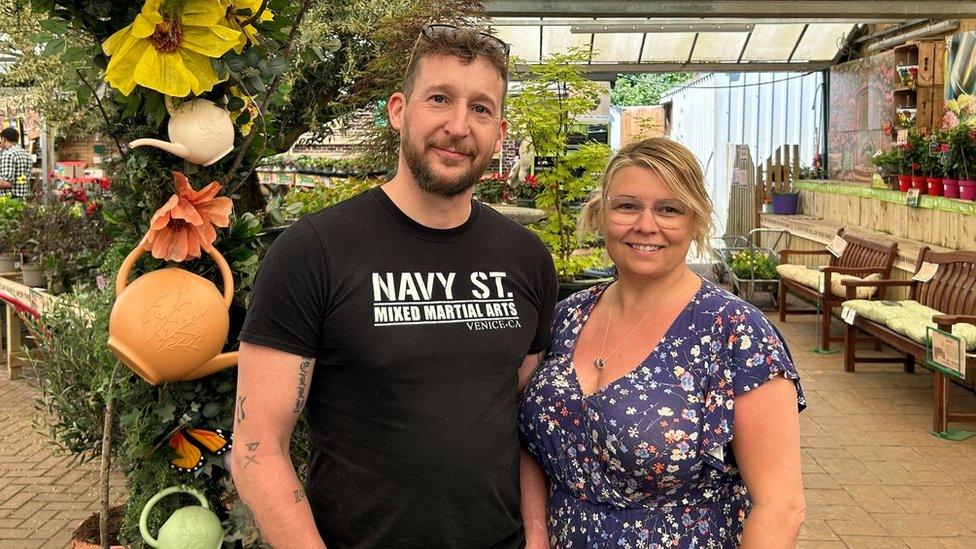
Ryan and Kelly Larke have opted for decking in their garden, rather than real or artificial grass
Married couple Kelly and Ryan Larke, from Rhondda Cynon Taf, said they took a balanced approach to the proposed plans.
"I think it's a mixed bag really - obviously for environmental reasons it's a good thing," said Mr Larke.
"But for elderly people artificial grass is less maintenance and gives you options of greenery where maybe you can't have it in a garden."
Related topics
- Published7 June 2023

- Published7 August 2022
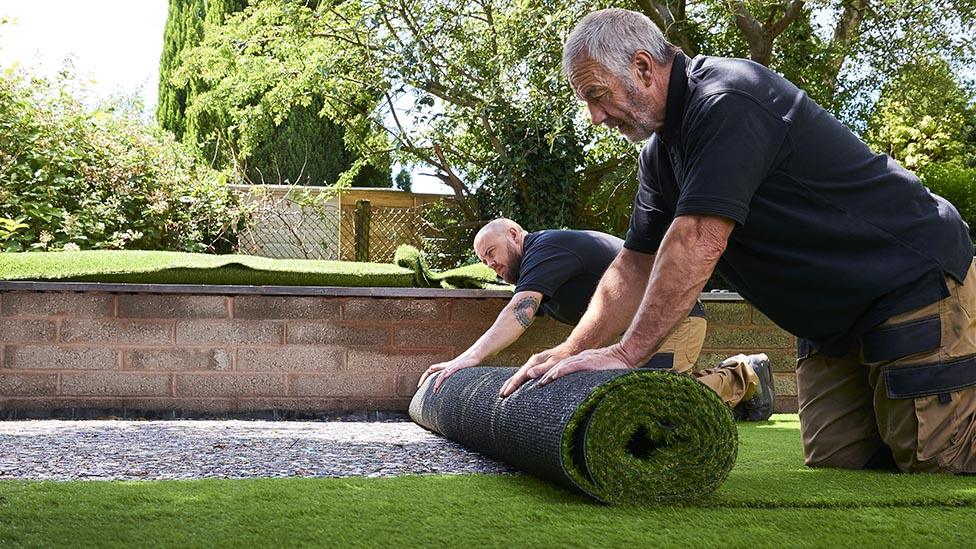
- Published24 April 2023
